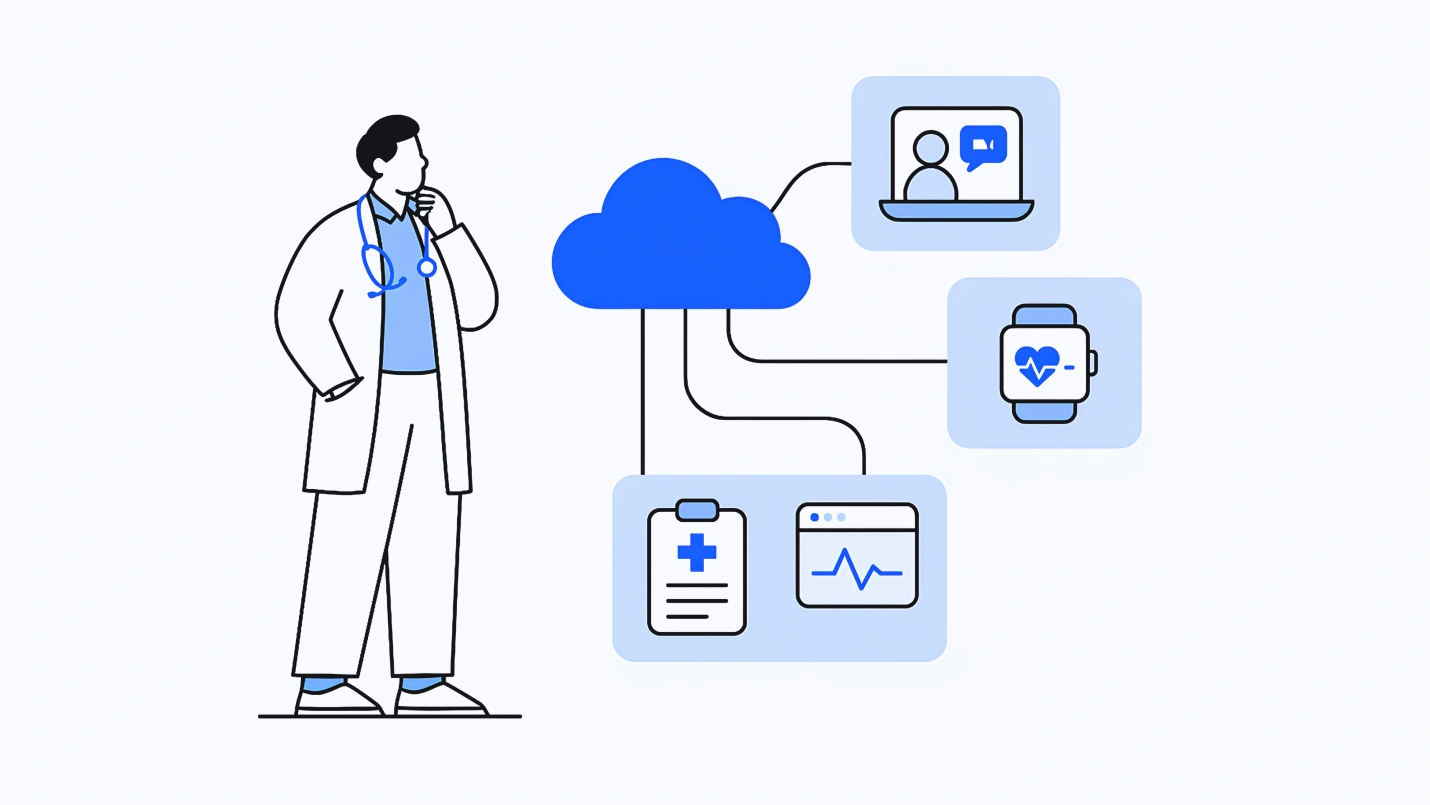Summary: Healthcare is a significant sector, and cloud computing has transformed how the industry functions. With more automated engagement, digitally empowered patients, and data at the heart of all medical practice, the sector is equipped with a robust technological support structure. Innovation, digitalization, networking & accessibility have worked together to change the face of the healthcare sector. It is a metamorphosis that has redefined how the world perceives the medical world. Below is a look at the system, functioning, benefits, concerns, and the slated future.
Collaborative healthcare, Efficient Patient record, and Extensive research will determine the Health Industry, with Cloud being the driving force – eventually, there is light behind the clouds!
-Anonymous, 2011
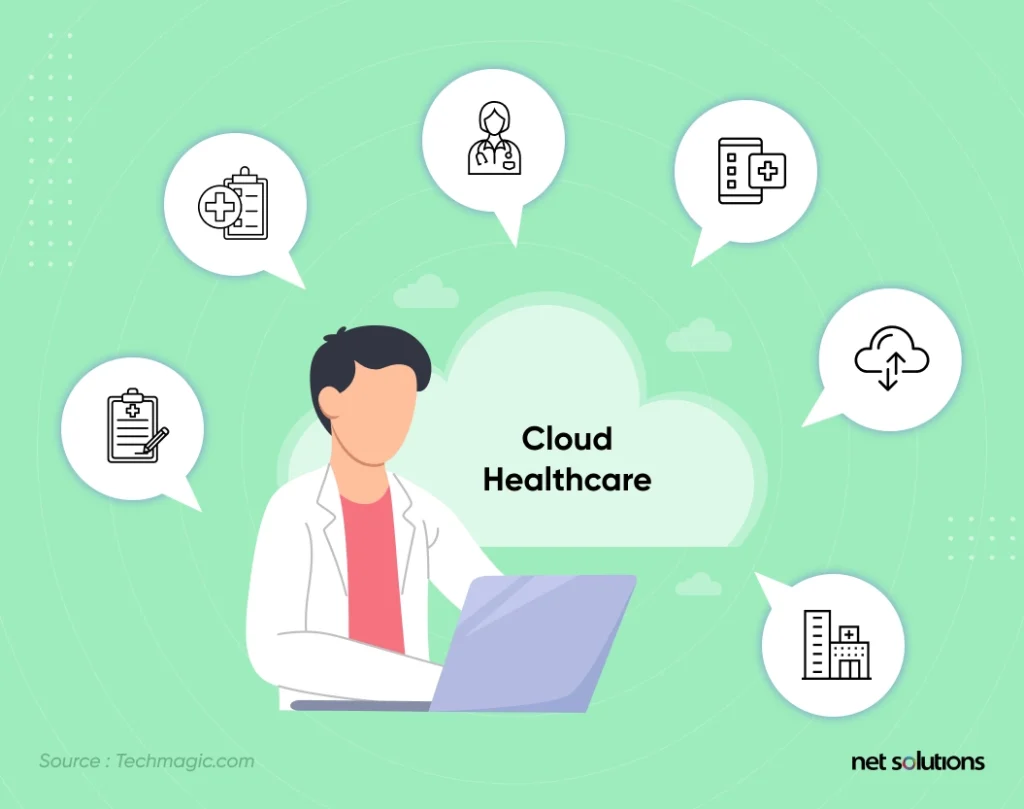
Cloud computing is a mainstream option today. It is a well-structured network over which information is stored, shared, and made accessible. The accompanying broad network enables access to services from a pool of resources with a lot of speed & flexibility. The result is efficiency, lowered costs, and ease of scale.
More and more businesses have opted for this methodology for better CRM. Besides making it convenient for them to serve the customer better, it bridges a gap between the industry and the end-user. All information is shared & services are more personalized.
Moreover, cloud-based app development solutions have made business processes & workflows more streamlined and accessible – an efficient ‘anytime, anywhere’ facility that has boosted growth across multiple genres. In some way or the other, almost 95% of companies are using multi-cloud facilities, and around 86% are into hybrid cloud techniques.
One of the most significant factors in the past few years, for healthcare service workers and patients, has been the development & growing use of cloud-based health apps. It has eased access to medical facilities and care.

We respect your privacy. Your information is safe.
What is Cloud Computing in Healthcare?
Cloud Healthcare involves remote servers accessible over the internet and storing, managing, analyzing, and utilizing healthcare-related data. This implies greater technological advancement than setting up on-site centers or hosting on personal computers.
Did you know that the market for healthcare cloud computing is projected to grow from $28.1 billion in 2020 to $64.7 billion by 2025 – at 18.1% annually during the forecast period?
The use of the cloud in the healthcare sector showed signs in 2006-07 and has since been rising. Undoubtedly, in recent times, the Covid-19 crisis and current global realities are majorly responsible for the increased adoption of cloud computing in healthcare.
The connected, available, and shared environment for both patients & healthcare professionals has led to phenomenal growth in cloud computing for healthcare. Flawless & consistent data storage and the ease of scaling up or down add to the gains that cloud computing in healthcare brings.
Given the current scenario when social distancing is still the norm, remote access to healthcare has become essential, and Online consultation has become a boon.
A cloud environment also brings lower costs, better decision-making, and efficient forecasting. It unifies research centers, hospitals, insurance companies, and patients.
Types of Cloud Computing in Healthcare Industry
The categorization is as per two norms – the Software used and the Ownership, while also considering both Distribution and Deployment.
Accordingly, we have the following classifications:
1. Software or Distribution aspect – SaaS, IaaS, PaaS
A. Software as a Service(SaaS)
SaaS denotes that the provider delivers the IT infrastructure, and deployment of applications and operating systems is the client’s responsibility. SaaS promises ready-to-use, cloud-based software such as clinical information systems.
When adopting SaaS, the healthcare companies would get access to cloud-based software managed by third-party cloud providers.
As a cloud solution, SaaS offers on-demand cloud hosting services for healthcare such that the organizations get ready & quick access to all medical data. Its basic operational methodology is ideal for smaller hospitals that want uncomplicated solutions where the vendors can maintain the servers themselves.
For EHRs (electronic health records systems), HIE ( health information exchange and other medical practice management systems, SaaS is perfect.
B. Infrastructure as a Service(IaaS)
In IaaS, the provider delivers the IT infrastructure and the operating system, but the client deploys the applications. The “client” here means the Hospitals, and they install all customization on the available infrastructure and the operating system & data structure.
These cloud solutions are appropriate for large-scale storage, while on-demand computing facility remains a common factor in cloud healthcare. Organizations who opt for this will have no control over the cloud infrastructure but control the OS, data storage, and the deployed applications.
C. Platform as a Service(PaaS)
PaaS gives maximum control over the cloud environment. Medical organizations can build custom healthcare apps and not worry about the back-end infrastructure’s maintenance or setup.
The provider delivers the IT infrastructure, OS, applications, and other components within a ready-to-use platform. PaaS is ideal for organizations with high patient interaction needing easy access and is all-inclusive and quite the revolutionary cloud model.
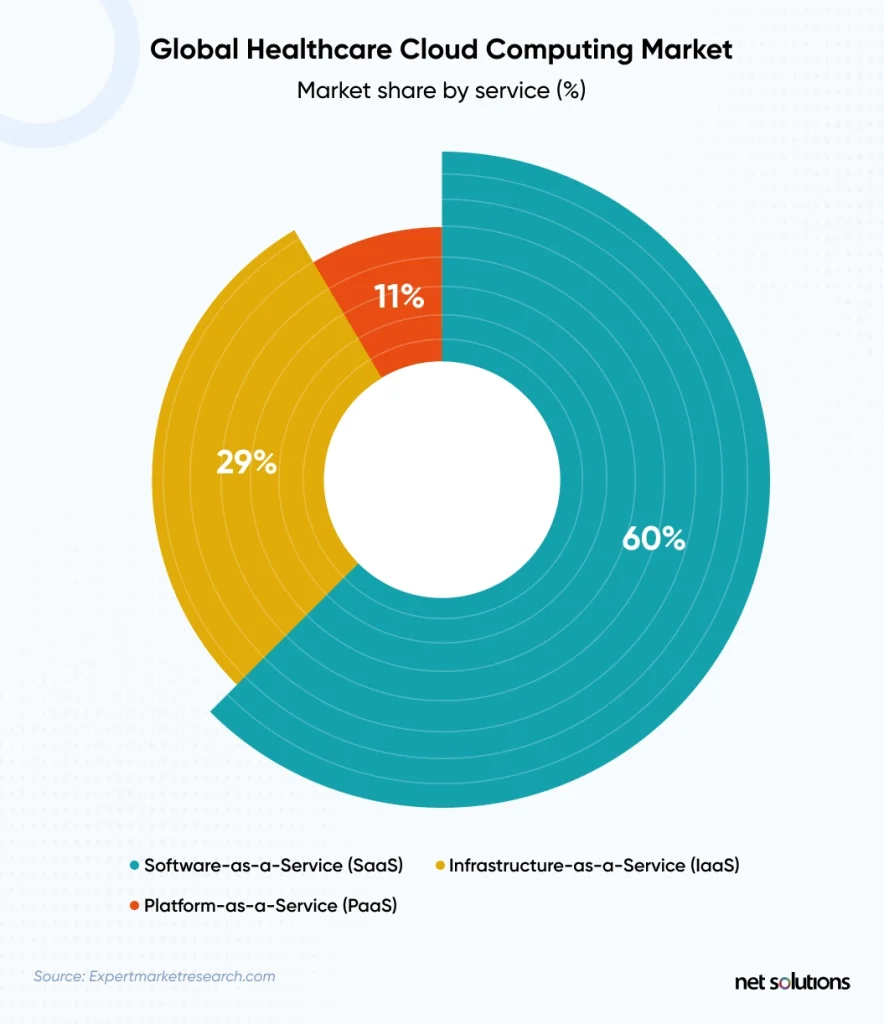
2. Owner aspect
- Private – where only one client can use technology.
- Community – such that one group with common objectives uses the technology.
- Public – used by the general public.
- Hybrid – combining various options of access to cloud healthcare.
Benefits of Cloud Healthcare
Whatever people’s skepticism about specific issues about the cloud, the reality is that the many advantages of cloud computing in healthcare make it a facility hard to ignore. Adoption, therefore, is on the increase. Cloud storage & operation in healthcare has been almost a revolutionary decision for organizations of all sizes.
Cloud Healthcare brings in the following benefits:
1. Centralized Data Storage & Management?
Storage is limitless. All data gets stored in virtual spaces, and information on a subject can be made available at any time. Medical staff can access all kinds of information from a private database.
Streamlining IT services has helped securely store information, making it easily accessible by medical personnel. Doctors must go through volumes of data to treat a patient – and it would be arduous to study that through in-campus equipment.
The absorption of AI & ML into cloud computing makes it possible to scan through volumes of complex & related data such that decision-making is more accurate. Cloud computing in the healthcare industry has speeded the transition process of the medical sector.
2. Enhanced Productivity
With everything on the cloud, all data entry and storage tasks become less time-consuming, more specific, and organized. Hospitals save space, but the chances of human error are reduced. Authorized staff can log into the database, retrieve information, add new information, and pull out data from virtual space without damaging existing files. Electronic Health Records (EHR) assist in building a collaborative patient care system.
3. Extensive Research & Insights
Cloud healthcare has led to massive improvement in the kind of research in the medical field. Cloud computing makes a high level of information accessible at your fingertips, and medical staff can expedite all appointment procedures & processes.
Unlimited data storage & availability provides access to knowledge on any topic about symptoms, treatments, and medicines. Suppose a patient shows a strange set of symptoms that are difficult at first to identify. In that case, it’s easy to digitally retrieve all existing science on the signs in question and pinpoint it to the most likely matches. Health professionals can run additional queries and tests to make an accurate diagnosis.
When research is refined, it also becomes possible for the medical teams to innovate & upgrade as per need and without losing time. With the increased role of cloud computing in healthcare, both tools & software programs get updated faster by tech teams working on the entire system. If needed, computing gets done even on third-party servers that medical staff can easily access.
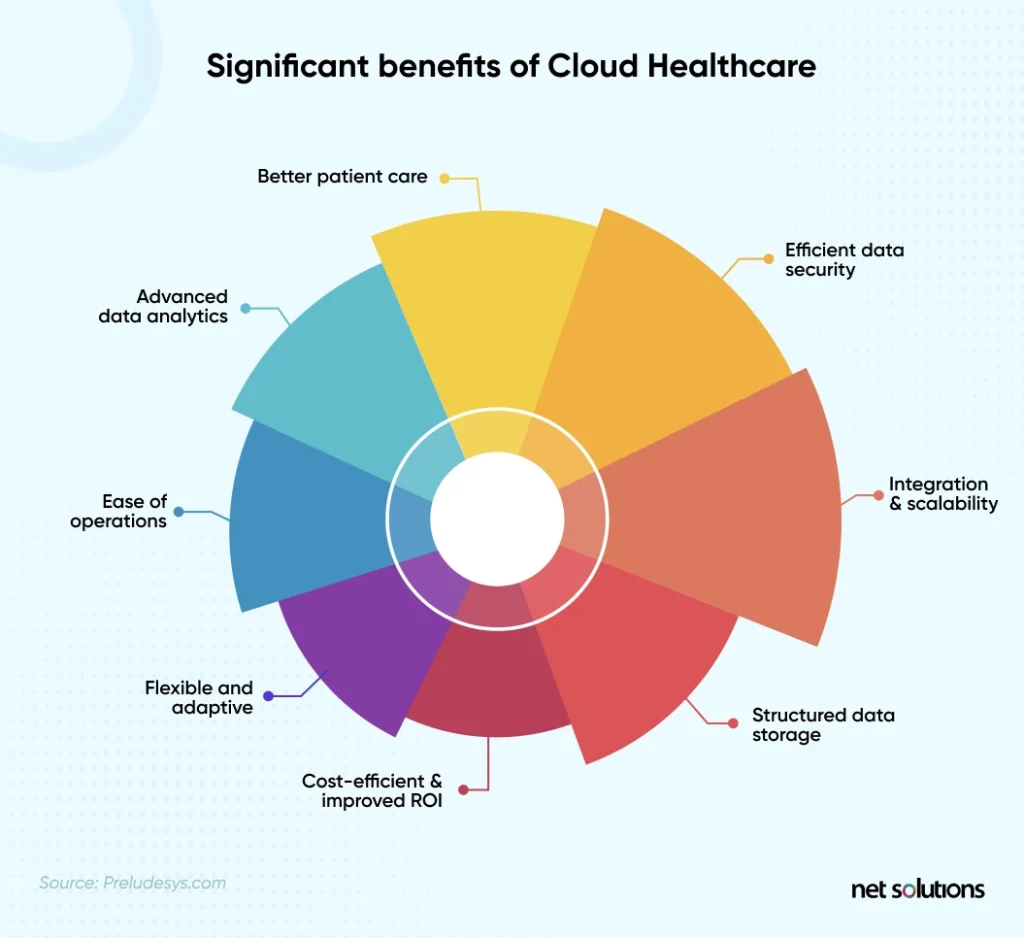
4. Remote Collaboration & Patient Care
Medical professionals now find it easier to communicate globally and collaborate whenever necessary. Retrieving information about the patient’s medical history has become more manageable, and collaboration has become possible & consistent.
Healthcare becomes more timely, efficient, and cost-saving when data gets shared across huge distances.
Procedures have become faster, payments more effortless, and medical insurance processes have become hassle-free. This also helps in emergencies and medical disasters.
Remote collaboration brings about the corresponding remote patient care. Even outcall medical professionals can take care of patients in a better manner. Regular monitoring is possible, patients have easy access to doctors & other medical staff, and ‘patient-care’ stands redefined by cloud computing.
5. Disaster management
In times of disasters like earthquakes or hurricanes, or in times like medical emergencies like the Covid-19, cloud computing in healthcare makes it easier to use the cloud for all administrative work, medical advice, communication with people on-site, coordination between medical team members, and leads to efficient & time-saving actions.
If needed, new medical products (Apps, data streamlining facilities, etc.) can be introduced into the market faster since demand assessment is more efficient with the cloud operating in all spheres.
6. Mobile Access
A significant plus point of cloud healthcare computing is accessibility from anywhere, anytime. For medical teams, communication & collaboration is possible from different locations; for patients, information is available in their sophisticated hands-on devices that are easy to use.
There is a range of Mobile Apps that connect the patient to the medical facilities. The organization, a mobile staff member, and a remote patient can now easily collaborate.
Telemedicine facilities come as a blessing and have helped reduce the gap between doctors & patients. Since there are automated backups and multiple touch-points of data storage, data recovery is much simpler – and patient data more streamlined.
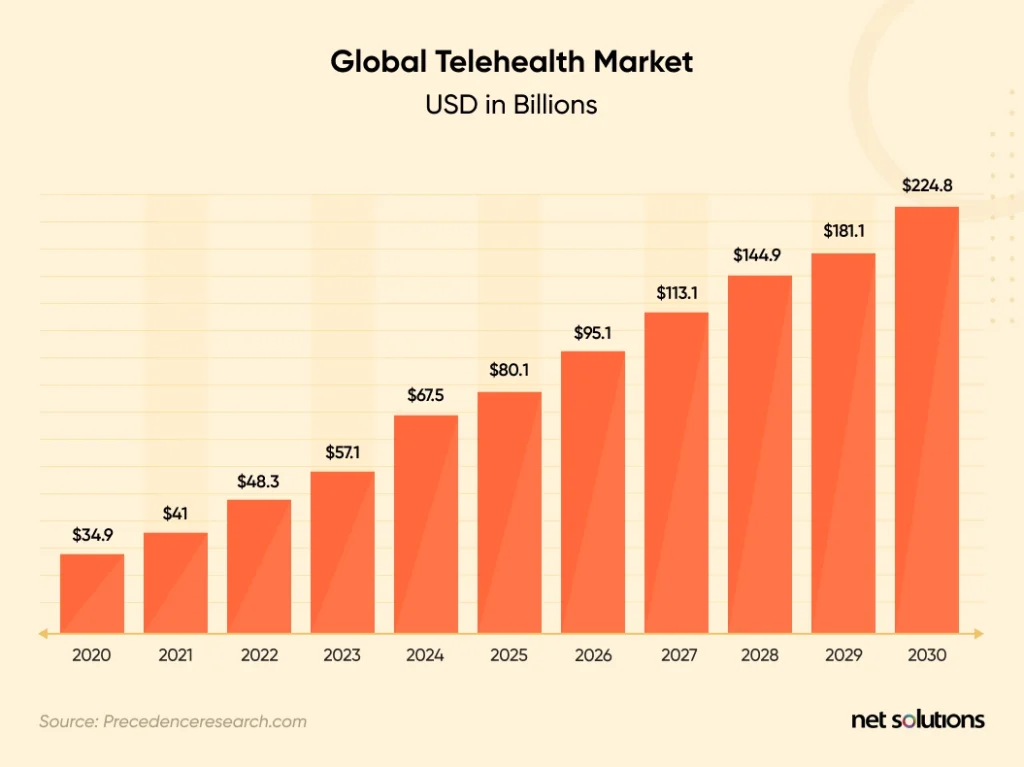
The usage of telemedicine capabilities (Apps like Amwell, PlushCare, Teladoc, Lemonaid, etc.) has been quite significant during the pandemic times. An analysis by McKinsey reports that the investment in virtual healthcare and digital health has skyrocketed, thus bringing more innovation too.
“Virtual healthcare models and business models are evolving and proliferating, moving from purely “virtual urgent care” to a range of services enabling longitudinal virtual care, integration of telehealth with other virtual health solutions, and hybrid virtual/in-person care models, with the potential to improve consumer experience/convenience, access, outcomes, and affordability.” (McKinsey, 2021)
Telemedicine Apps also offer features like HIPAA compliance, which are necessary for healthcare.
7. Cost-effectiveness
Organizations usually have to bear high costs for establishing and maintaining server capabilities. Cloud computing helps cut the overhead costs of keeping files, paperwork, computers, or IT staff. Third-party service providers handle all this for the medical institute.
All worry about maintenance or scaling of these servers & services falls in the scope of the service providers, not the medical organizations. Up-front charges become zero, and the medical institute only pays for services. Remote handling & problem solving further reduces costs and saves time. All issues that would otherwise be addressed on local networks now move to the cloud. The net result is efficiency, time-saving, cost reduction, and hassle-free maintenance.
8. Security and Privacy
It is legally mandatory that all cloud services adhere to the Health Insurance Portability and Accountability Act (HIPAA). Cloud computing in healthcare facilitates the maximum level of security & privacy through its systems. It protects data from manual loss as well as loss through natural calamities. Since it’s easy to trace digital footprints, it would be easy to trace if a cyber-criminal tried to access data.
HIPAA-governed cloud computing is structured to provide medical facilities with all benefits of remote data storage and then do so within the legal guidelines laid out for the industry.
9. Ease of Scalability
Cloud healthcare computing allows businesses to scale their operations up or down according to market conditions or season demands. A medical facility will eventually expand in terms of patient flow, staff, and infrastructure – cloud computing makes it easier for the institute to scale up or down as the situation demands.
Cloud healthcare platforms grow and adjust as per needs. Scalability allows an organization to adapt its payment models accordingly, too.
How Is Cloud Computing Transforming The Healthcare Industry?
Given the benefits of cloud computing in healthcare, it is no wonder why more & more medical organizations would be interested in adopting these services. The primary transformational changes are:
- Easy Collaboration: Patient data has become readily available to medical professionals irrespective of their location; other related spheres like pharmaceuticals, insurance, and healthcare payments have evolved.
- Evolved Analytics & Insights: In present times, the greatest and most valuable asset that an organization can own is its data. HIPAA compliance in cloud healthcare means that the most relevant & well-structured data about a citizen’s medical history is stored and easily accessible. Analytics have become that powerful, bringing in higher insights into medical issues.
- Democratized Medical Data: The patients’ participation in health decisions has increased. Their sense of being involved in their medical care is higher, and insightful reporting encourages them to be more aware of what is best for them.
Examples of Cloud Computing Services
As more organizations opt for cloud healthcare, it would be good to remember some of the more prominent names offering these services:
- Pfizer is one of the most prominent examples of cloud computing. Extensive research and cloud frameworks went into the technology in Xalkori, the drug developed for a particular patient category of lung cancer with the ALK gene mutation.
- NetApp delivers data in real-time. Clinical procedures become faster, backup is faster, and data growth is better absorbed & adapted.
- Medsphere provides services to multiple clinical, financial, accounting, and nursing companies.
- Nintex has been known to simplify document processes, enhance the patient experience and provide automation services.
- ClearData helps shift medical data and apps into the cloud and retrieve it over private and secure connections.
- Carecloud software enables greater efficiency amongst healthcare providers and connects directly with patients.
Concerns in Cloud Computing Application
Even with its widespread use in the medical world, there are some concerns that the healthcare cloud evokes.
1. Security compliance
Extensive sensitive patient data is maintained and stored, and cyber-crime raises safety concerns. Cyber-attacks can occur anywhere on cloud-based servers and elsewhere. Protection policies need to be implemented.
2. Expertise
Cloud computing demands special skills to work on software and technology. This may be a barrier at times – although not one that can’t be crossed.
3. Reliability
Cloud platforms are primarily stable, assuming they have been built with this quality. Still, they can experience downtime. Given that reliability is a must in the healthcare sector, you must have contingency plans if problems arise.
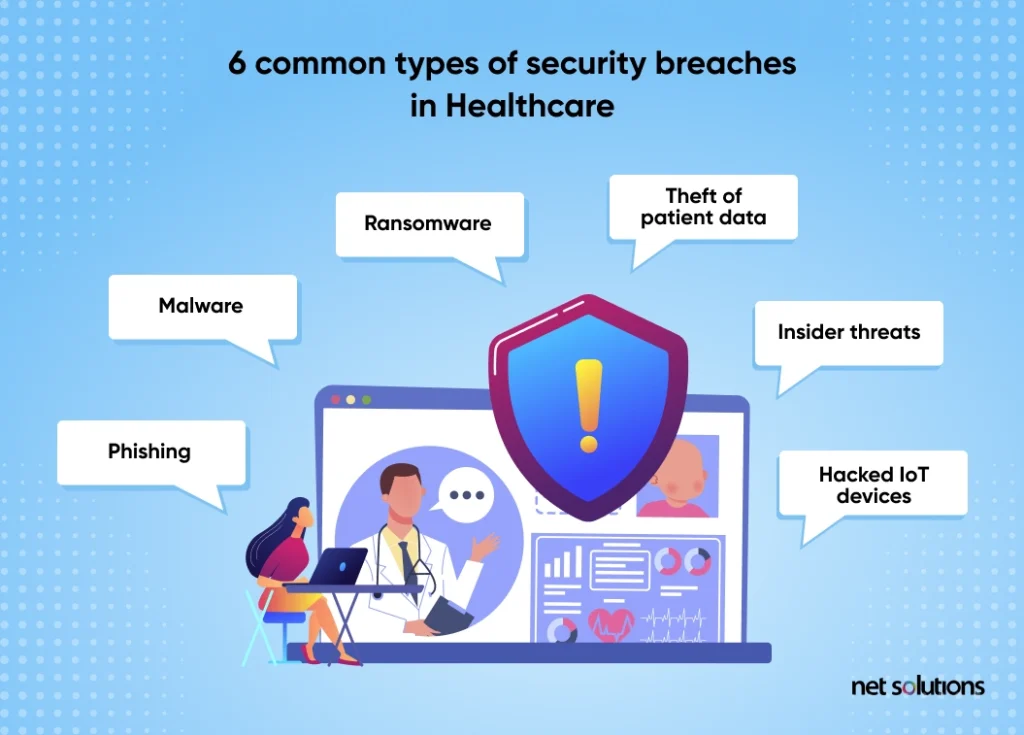
4. Limited functionality of Cloud computing
It will not be enough and require a practical analysis, smart devices, AI, and comprehensive data management. Plus, there can be system lapses threatening and hampering the functioning of medical organizations.
5. HIPAA Compliance
How can medical organizations be sure they are using HIPAA-compliant cloud solutions? Concerns start with security, patient privacy protocols, data access for all stakeholders, adherence to the law, etc. The validity of every cloud-based solution claiming to be HIPAA-compliant needs to be checked, and hospitals need to check the control level they will give the solution provider. The entire cloud solution needs to be HIPAA compliant, not just a part of it, where multiple vendors or vendor associates are involved. HIPAA risk assessment is necessary to ensure safety for both the medical institute and the patients.
The Future of Cloud Healthcare
It is estimated that the global market value of cloud healthcare was nearly $10 billion by 2020 and is expected to reach $45 billion by 2023. Other surveys have also shown that it would reach USD 89.4 billion by 2027 from USD 39.4 billion in 2022.
One such survey:
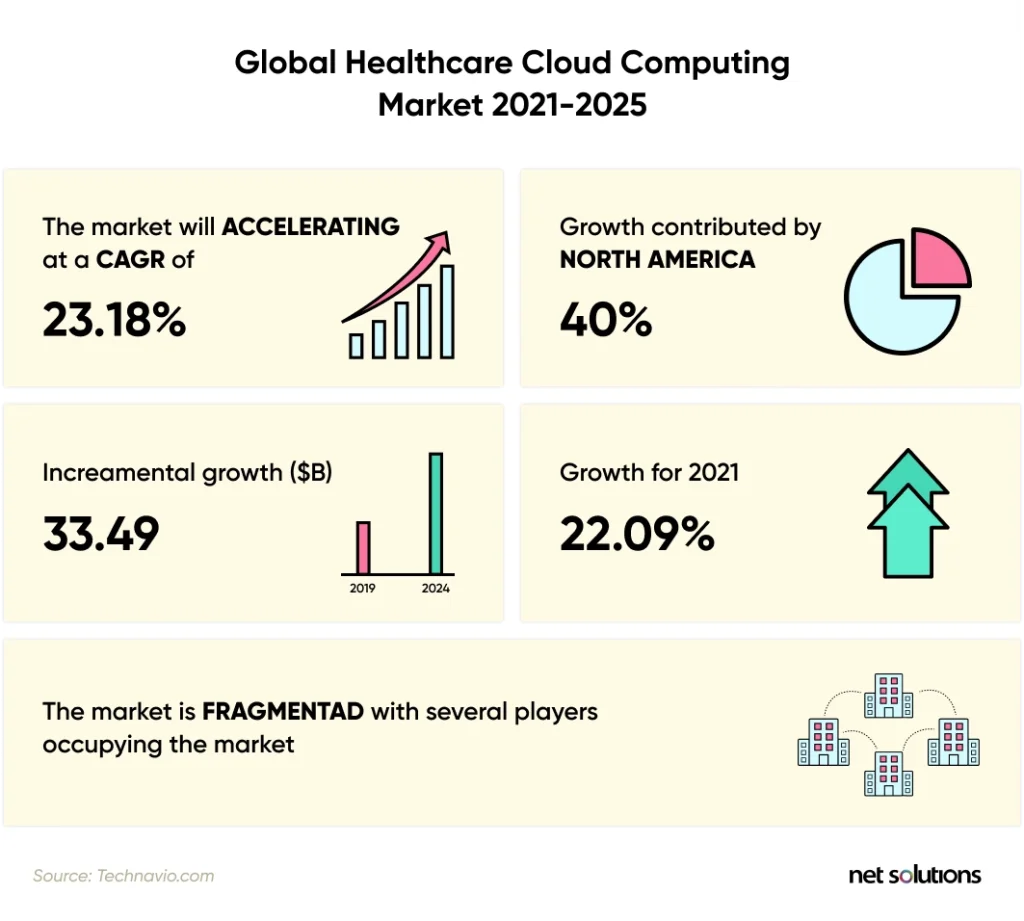
Surveys, especially in the post-pandemic times, have shown that most medical organizations are more than willing to host all applications on the cloud.
With the advent of expertise and cost-effective outsourcing channels for cloud computing, there has been a massive adoption of cloud computing in healthcare – all for the benefit. Remote accessibility, scalability, the democratization of data, and other benefits make it a viable option to follow. Future demands call for more significant steps to address security issues and cost optimization.
More significant medical research, higher data interoperability, and increased application on the cloud are where the world will head. We will have more innovations in healthcare, including AI-driven voice communication and patient assistance. Remote patient monitoring (telecloud & telehealth), disease surveillance, and technology to assess even raw medical images are what cloud healthcare can involve. Over time, along with a patient-centric approach, cloud healthcare should work towards disease prevention rather than just treatment.
Frequently Asked Questions
Service and Sales clouds are responsive to various customers across social platforms for customer service and support. Health cloud focuses on accumulating, storing & accessing data related to patients to facilitate care by medical organizations.
Look for HIPAA compliance, security measures like firewalls & antivirus detection, geographical area of operation, pricing, contract terms, ease of accessibility, customer support services, the technology used, subcontracting & reliability, disaster management /recovery of data, and the exit plans.
Steps are constantly taken to secure patient data. Cloud computing in healthcare is architecturally based on security compliance. Plus, there is ‘zero-trust architecture’ in cloud healthcare – assuming there will be a breach & therefore verifying every user across hybrid work models, multiple clouds & data center systems. Proactive cyber security helps maintain patient data. As a natural flow, the more organizations move towards the Cloud, the more cyber security systems sharpen.

